Setting Business Goals
Setting clear and achievable business goals is essential for steering your company toward sustained success. These goals not only provide direction but also serve as benchmarks for measuring progress and performance. Here's a comprehensive guide to understanding and setting effective business goals.
Understanding Business Goals
Business goals are the desired outcomes that a company aims to achieve within a specific timeframe. They can be broad, overarching targets for the entire organization or specific objectives for departments and individual employees. Typically, these goals align with a company's mission and vision, reflecting its larger purpose or financial aspirations.
Importance of Setting Business Goals
Establishing well-defined business goals is crucial for several reasons:
- Risk Management: Goals create a roadmap that helps identify and mitigate potential risks, ensuring the company stays on course.
- Employee Engagement: Clear objectives foster employee buy-in, boosting morale and aligning individual efforts with the company's mission.
- Performance Measurement: Goals serve as benchmarks to assess progress, allowing for timely adjustments and continuous improvement.
Steps to Setting Effective Business Goals
To set goals that drive success, consider the following steps:
- Brainstorm Potential Goals: Identify what you aim to accomplish in the short and long term. Engage stakeholders to gather diverse perspectives and ensure alignment with the company's mission.
- Define Clear Objectives: Articulate goals that are specific, measurable, achievable, relevant, and time-bound (SMART). This clarity enhances focus and facilitates tracking progress.
- Align Goals with Strategy: Ensure that each goal supports your overall business strategy, creating coherence and reinforcing the company's direction.
- Communicate Goals Effectively: Share goals across the organization to foster understanding and commitment. Clear communication ensures everyone is working toward the same objectives.
- Monitor and Adjust: Regularly review progress toward goals, using key performance indicators (KPIs) to measure success. Be prepared to adjust strategies as needed to stay aligned with changing circumstances.
Examples of Business Goals
Here are some illustrative examples of business goals:
- Increase Revenue: Aim to boost revenue by a certain percentage over a specified period, such as increasing sales by 20% in the next fiscal year.
- Enhance Customer Satisfaction: Strive to improve customer ratings or Net Promoter Scores (NPS) by a targeted amount, reflecting better service and product quality.
- Expand Market Share: Set a goal to become a leader in your market by increasing your share by a specific percentage, indicating growth and competitiveness.
Conclusion
Setting well-defined business goals is a foundational practice that drives organizational success. By following a structured approach—brainstorming, defining clear objectives, aligning with strategy, effective communication, and continuous monitoring—you can establish goals that propel your business forward. Remember, the process of goal setting is dynamic; remain adaptable and responsive to ensure your goals continue to align with your company's evolving vision and the ever-changing business landscape.
Sources:
https://online.hbs.edu/blog/post/business-goals-and-objectives
https://www.indeed.com/career-advice/career-development/business-goals
THIS ARTICLE IS FOR GENERAL INFORMATION PURPOSES ONLY. BUSINESS FINANCIALS, INC. (BFI) IS NOT ISSUING SPECIFIC FINANCIAL OR TAX ADVICE. PLEASE CONSULT WITH A LICENSED FINANCIAL PLANNER, TAX ATTORNEY, OR ACCOUNTANT FOR ASSISTANCE WITH YOUR SPECIFIC SITUATION. IF YOU NEED HELP, WE INVITE YOU TO CONTACT US. WE WILL BE HAPPY TO MAKE RECOMMENDATIONS OR REFER YOU TO A LICENSED PROVIDER WHO MAY BE BEST SUITED FOR YOUR SITUATION.





